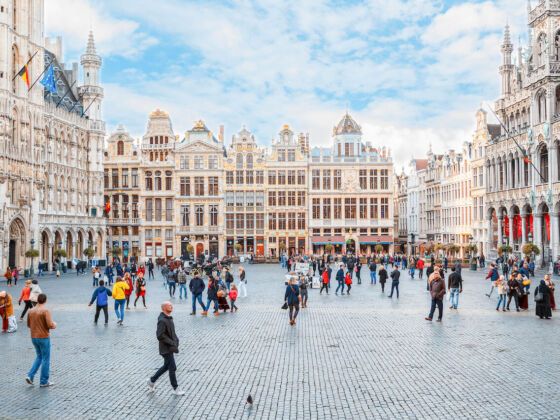AFTER THIS MORNING’S ATTACKS on the city of Brussels, and after the attacks were claimed by the Islamic State, there was some predictable nasty backlash on social media (and, through Donald Trump, on mainstream media) against Muslims. On Twitter, racists and Islamophobes began tweeting using the hashtag #StopIslam, and within a short period of time, it was listed under the trending hashtags on Twitter.

After Brussels, #StopIslam Is Trending -- but for All the Right Reasons
But, as the Washington Post pointed out, it was trending for the opposite reason you might expect: more people were pushing back against the hashtag than were in favor of it. The Post writes:
In fact, [#StopIslam’s] spread would appear to mirror a heartening phenomenon that researchers observed after the November terrorist attacks in Paris: Anti-Muslim rhetoric spikes disturbingly on social media after an attack, but the spike of anti-anti-Muslim rhetoric is even more dramatic.
Post reporter Caitlin Dewey points out that the main Tweet that kicked the trend off was by a right-wing troll in Spain, who used the hashtag (popular among America’s Tea Party) in conjunction with comments about Brussels. But the responses to this original Tweet were mostly negative, with social media users pointing out that there’s a huge difference between Islam and ISIS, and that westerners attacking Islam (whether it’s verbally or physically) only play into the hands of extremists like ISIS who are trying to provoke a culture war between Islam and the west when there are no reasons the two groups should be at odds.
It’s easy in times of tragedy to fixate on the nastiness it can bring out in people. This same thing happens every time there’s a major terrorist attack. But the great power of the internet is it allows us to compare the bigots and the racists against the kind and compassionate people of the world. And the numbers are clear: the good people are in the majority.
Via: The Washington Post